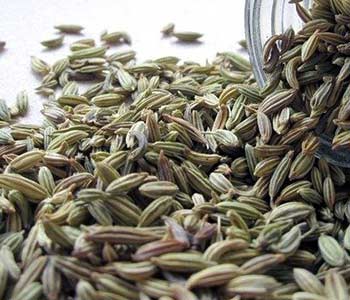Your IQ Is 140 Or Higher If You Know The Longitude and Latitude Of These Cities

Embarking on a fitness journey is a life-changing decision that requires dedication, patience, and a well-structured plan. As a beginner, navigating the world of fitness can be overwhelming, with countless workout routines, diets, and conflicting advice. This comprehensive guide will provide you with the essential knowledge and tools to kick-start your fitness journey and achieve your health and wellness goals.
1. Set SMART Goals
Before diving into your fitness journey, it's crucial to set specific, measurable, achievable, relevant, and time-bound (SMART) goals. These goals will serve as your roadmap and motivation throughout your journey. Examples of SMART goals include:
- Lose 10 pounds in 3 months by exercising 4 times a week and maintaining a balanced diet.
- Run a 5K race within 6 months by following a structured training plan.
- Increase muscle mass by 5% in 4 months through strength training and protein-rich nutrition.
Remember, your goals should be tailored to your individual needs, preferences, and current fitness level. Consistently tracking your progress and celebrating small victories along the way will help you stay motivated and committed to your journey.
2. Develop a Balanced Workout Routine
A well-rounded workout routine should include a combination of cardiovascular exercise, strength training, and flexibility work. The U.S. Department of Health and Human Services recommends that adults engage in at least 150 minutes of moderate-intensity aerobic activity or 75 minutes of vigorous-intensity aerobic activity per week, along with two or more days of muscle-strengthening activities [1].
For beginners, it's essential to start slowly and gradually increase the intensity and duration of your workouts to prevent injury and burnout. Some examples of beginner-friendly workouts include:
- Cardiovascular exercise: Brisk walking, jogging, swimming, cycling, or dancing for 20-30 minutes, 3-5 times a week.
- Strength training: Bodyweight exercises (e.g., push-ups, squats, lunges), resistance band workouts, or machine-based exercises, focusing on major muscle groups, 2-3 times a week.
- Flexibility work: Stretching for 10-15 minutes after each workout session, or attending yoga or Pilates classes 1-2 times a week.
As you progress in your fitness journey, you can gradually increase the complexity and intensity of your workouts, incorporating more advanced exercises and techniques to continue challenging your body and preventing plateaus.
3. Prioritize Proper Nutrition
Nutrition plays a vital role in achieving your fitness goals and maintaining overall health. A balanced diet should consist of a variety of nutrient-dense foods, including fruits, vegetables, whole grains, lean proteins, and healthy fats. The Academy of Nutrition and Dietetics recommends that adults consume a range of 45-65% of daily calories from carbohydrates, 20-35% from fats, and 10-35% from proteins [2].
To support your fitness goals, focus on:
- Eating whole, minimally processed foods: Choose fresh fruits and vegetables, whole grains, lean meats, fish, legumes, and nuts over processed and packaged foods.
- Staying hydrated: Drink water throughout the day and during workouts to maintain proper hydration levels and support physical performance.
- Consuming adequate protein: Incorporate lean protein sources, such as chicken, fish, tofu, and legumes, to support muscle recovery and growth.
- Practicing portion control: Use tools like measuring cups, food scales, or hand portions to ensure you're consuming appropriate serving sizes.
- Allowing for flexibility: Enjoy your favorite treats in moderation, and don't be too restrictive with your diet, as this can lead to feelings of deprivation and increased cravings.
Remember, everyone's nutritional needs are unique, and factors such as age, sex, height, weight, and activity level can influence your individual requirements. Consulting with a registered dietitian can help you develop a personalized nutrition plan that aligns with your fitness goals and lifestyle.
4. Prioritize Rest and Recovery
Rest and recovery are essential components of any successful fitness journey. Adequate sleep, rest days, and active recovery techniques help your body repair, rebuild, and adapt to the stresses of exercise. Neglecting rest and recovery can lead to overtraining, increased risk of injury, and decreased performance.
To optimize your rest and recovery:
- Aim for 7-9 hours of quality sleep per night, as recommended by the National Sleep Foundation [3].
- Incorporate rest days into your workout schedule, allowing your body to recover between intense training sessions.
- Engage in active recovery activities, such as light stretching, yoga, or low-intensity cardio, to promote blood flow and reduce muscle soreness.
- Practice stress-management techniques, such as deep breathing, meditation, or journaling, to reduce the impact of mental and emotional stress on your physical well-being.
By prioritizing rest and recovery, you'll be better equipped to maintain consistency in your workouts, avoid burnout, and achieve your long-term fitness goals.
5. Stay Motivated and Accountable
Staying motivated and accountable throughout your fitness journey is crucial for long-term success. Here are some strategies to help you stay on track:
- Find a workout buddy or join a fitness community: Having a support system can provide encouragement, accountability, and a sense of camaraderie.
- Track your progress: Use a fitness app, journal, or spreadsheet to monitor your workouts, nutrition, and progress towards your goals.
- Celebrate your achievements: Acknowledge and reward yourself for reaching milestones, whether it's losing a certain amount of weight, running a personal best, or consistently working out for a month.
- Mix up your routine: Try new workouts, exercises, or fitness classes to prevent boredom and keep your body challenged.
- Focus on the process, not just the outcome: Embrace the journey and find enjoyment in the daily habits and practices that contribute to your overall health and well-being.
Remember, setbacks and challenges are a normal part of any fitness journey. Be kind to yourself, learn from your experiences, and maintain a growth mindset as you continue to work towards your goals.
Conclusion
Starting a fitness journey can be a transformative experience, leading to improved physical health, mental well-being, and overall quality of life. By setting SMART goals, developing a balanced workout routine, prioritizing proper nutrition, allowing for rest and recovery, and staying motivated and accountable, you'll be well-equipped to navigate the challenges and reap the benefits of a lifelong commitment to fitness.
Remember, everyone's fitness journey is unique, and progress takes time. Be patient with yourself, celebrate your successes, and embrace the process of becoming the healthiest, strongest version of yourself.
References
- U.S. Department of Health and Human Services. (2018). Physical Activity Guidelines for Americans, 2nd edition. Retrieved from https://health.gov/paguidelines/second-edition/pdf/Physical_Activity_Guidelines_2nd_edition.pdf
- Academy of Nutrition and Dietetics. (2019). Eat Right: Food, Nutrition and Health Tips from the Academy of Nutrition and Dietetics. Retrieved from









